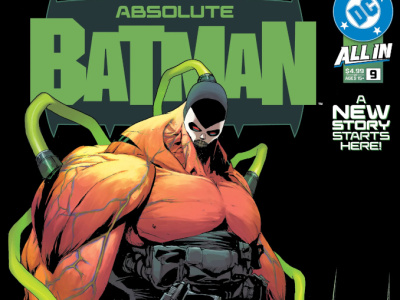
In remarks to pop culture retailers by Bob Wayne, DC's Vice President of Sales and Marketing at the San Diego Comic Book Expo this week (see 'Dueling Majors'), he alluded to the fact that DC is able to keep its books from turning up in other channels faster than they do in pop culture stores, while Marvel is not (see 'Are Newsstand Copies of Marvels Out Before the Directs?'). ICv2 drilled down on this issue with Wayne and DC Executive Vice President Paul Levitz at the Expo. The quick version is that DC holds its newsstand books for 11 days after the direct books are released to Diamond before releasing them to Warner Publisher Services, its national distributor to the newsstand. It's safe to conclude that this is different from the way Marvel handles it. In order for Marvels to appear in newsstand outlets before they reach Diamond accounts, Marvel must release its books to the newsstand at the same time as it releases them to Diamond, or shortly thereafter, rather than holding them as DC does. First, we asked how DC handles its two main channels for distribution, and were told the following:
Wayne: Diamond picks up new comics on Fridays in Plattsburgh. Twelve days later those books hit direct market retailers on a Wednesday. We release books to the newsstand one day before they're received by direct market retailers. If we release them on a Tuesday, that's when they actually pick them up. So they then have to make it all around the world, be broken down at the various IDs and go out to retail.
ICv2: So when you say release, you release them to the newsstand national distributor?
Wayne: Right. We release them to Warner Publisher Services.
ICv2: So they're actually taking possession, or their shipments are leaving the printer on that Tuesday?
Wayne: Yes. They're taking possession, leaving the printers...same thing...their trucks roll out on that Tuesday.
Wayne did cover a few situations in which newsstands might be able to get books out at the same time as direct (Diamond) accounts:
Wayne: The only way our books show up in an ID distribution system newsstand outlet on or before that Wednesday would be one of a couple of things:
One would be if we deliberately choose to have a book come out simultaneously in all markets. We've done that a couple of times--we've had tie-ins with movies like Batman feature films where we've manipulated the shipping to force it through quickly into the ID system. And we've always tried to notify our retail partners when we're making that type of decision, and we haven't done that in several years.
The second way it's possible, and this has happened only once I'm aware of, but I want to cover all the various things that can possibly happen, we had at least one time where a clerk at a mass market book store that had a comic book spinner rack had a friend who was a clerk at a comic shop. And the comic shop guy was buying his comics at a discount, bringing them over to his friend at the Waldenbooks, and swapping them dollar for dollar so he was buying his books at a discount by using his discount.
ICv2: A channel migration.
Wayne: Yes, a channel migration, but that doesn't appear to be happening on a substantial basis--that probably accounts for the occasional blips, like, 'I just bought this on Wednesday and I went by and they've already got it at Waldenbooks!' Well that's because of that.
And the other one would be human error, if something got released inappropriately early. I don't think we've had anything like that happen for years.
We haven't had any substantial complaints about this, so I think the systems we have in place have effectively made this a non-issue for us....It looks like it's a good plan for us.
We asked Wayne and Levitz to contrast DC's way of handling it to the way it was handled by their competition
Wayne: Marvel handles their stuff the way they think is best for them, all I do is handle our stuff the way I think is best for us.
{IMAGE_2}
Levitz: You have to consciously set up your logistics system to decide that you want to get product in front of people on targeted dates and in targeted orders in order to do it. If you don't pay any attention to it, it goes out in whatever order suits the printing system, and that certainly was how the business operated twenty odd years ago, based on which shipment took the most trucks or occupied the most space on a printer's loading dock, and it certainly wouldn't shock me if there was a publisher somewhere in the world that was just letting printers' efficiencies determine what order the books went to who and didn't much worry how the dominoes fell.







